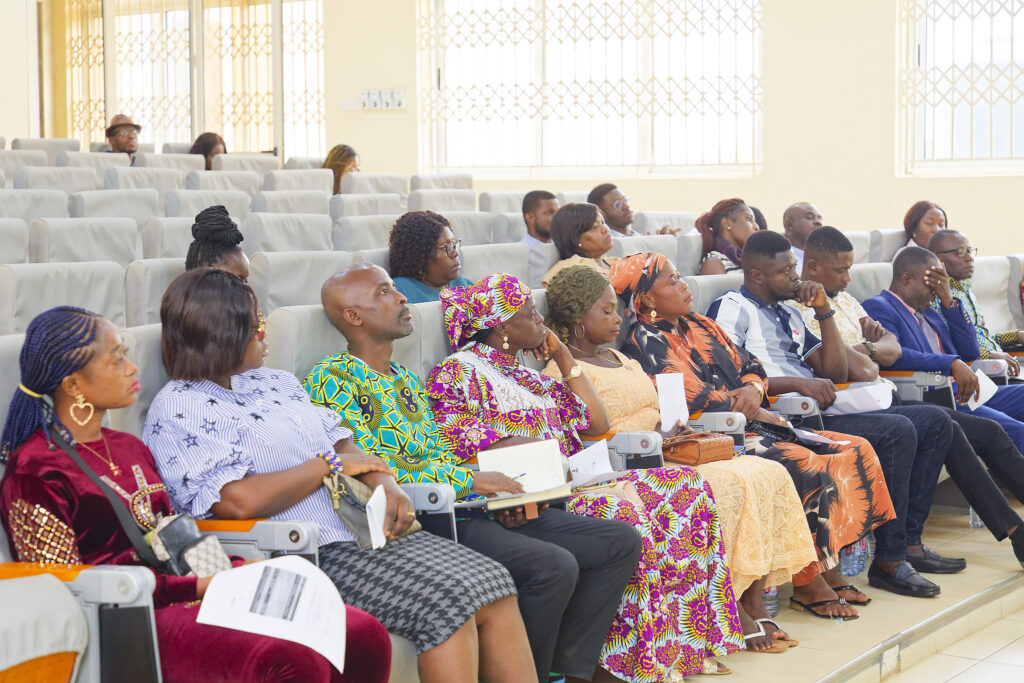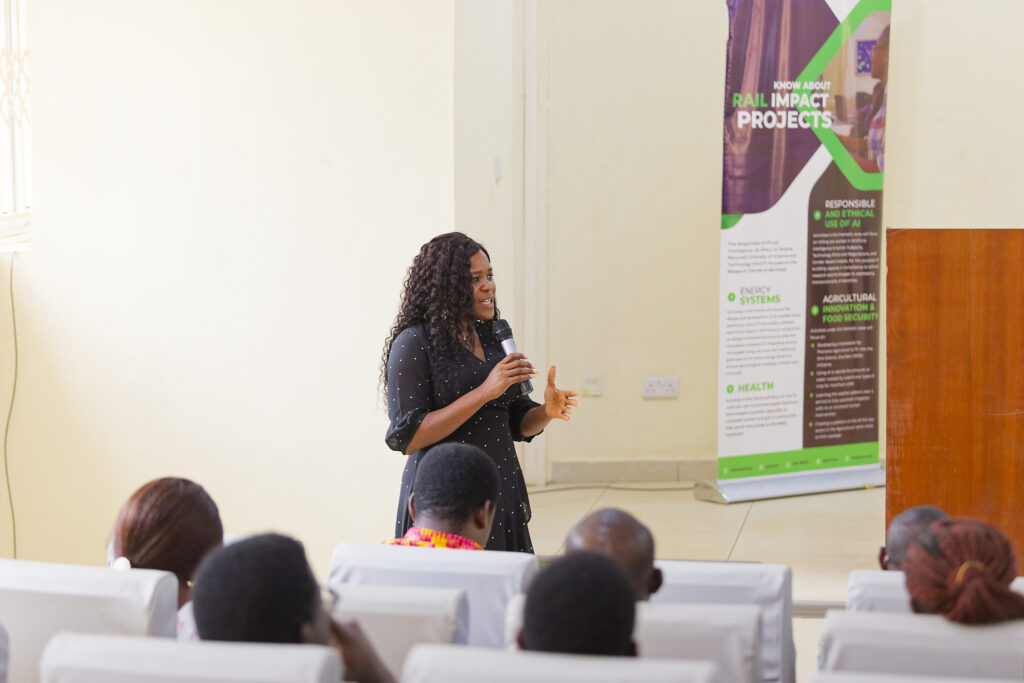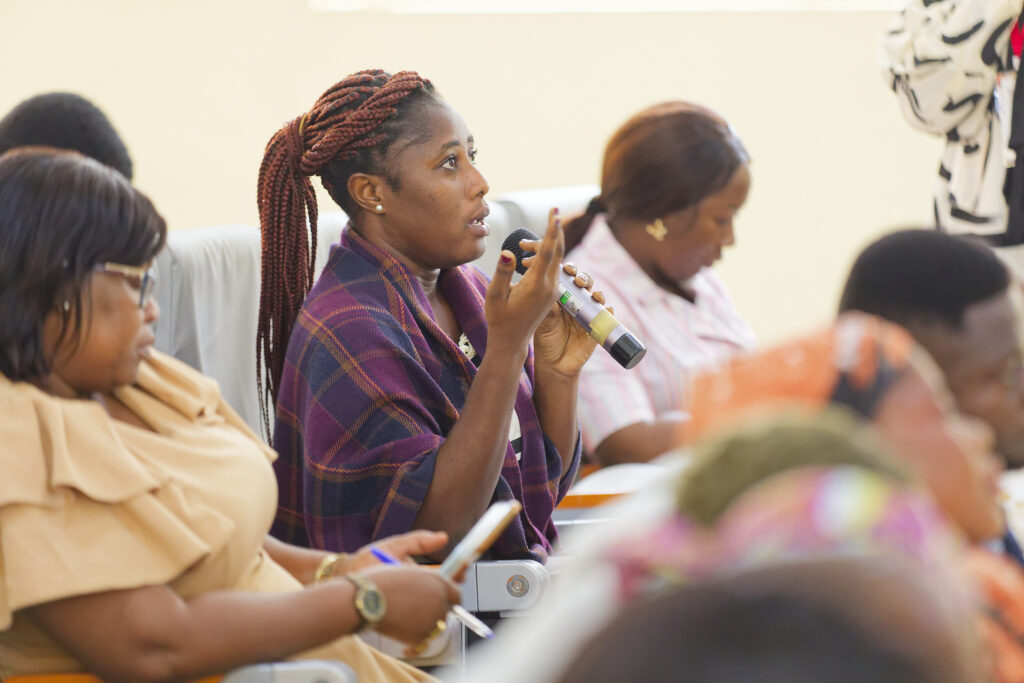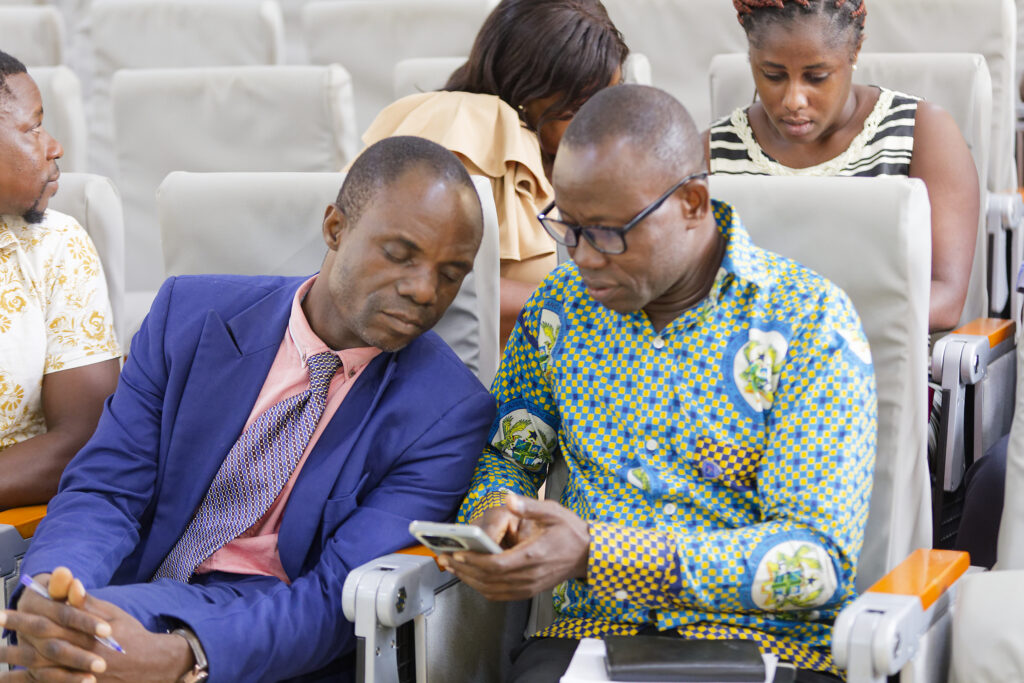The Responsible AI Lab (RAIL) convened a stakeholder engagement event on 27th June 2024 at the RWESCK Auditorium. The stakeholder engagement event successfully gathered valuable input, user testing & feedback, and perspectives from key stakeholders on leveraging Artificial Intelligence (AI) to develop a comprehensive toolbox aimed at supporting victims of intimate partner violence (IPV) and gender-based violence.

The engagement saw active participation from representatives of the Ministry of Gender, Children and Social Protection (MGCSP), the Domestic Violence and Victim Support Unit (DOVVSU), the Department of Social Welfare, the Department of Children, civil societies, individuals and the KNUST Counselling Unit.

Dr. Rita Udor presented the initial challenges faced by Boame App, introduced by The Ministry of Gender, Children and Social Protection (MGCSP), which eventually became dysfunctional. These challenges provided critical lessons for the development of the new AI toolbox. Dr. Rita Udor explained the objective of the current project, emphasising its importance in filling the gaps left by previous initiatives like the Boame App. The new project aimed to leverage AI to provide more robust, scalable, and user-friendly support to victims of IPV and gender-based violence.
Other project team members are Prof. Jerry John Kponyo, Dr. Eric Tutu Tchao, Dr. Eunice Akyereko Adjei and Ms. Christiana Aggor.

Dr. Udor reported that the IPV team conducted extensive community engagement in the Ashanti and Upper West Regions, utilising interviews and focus group discussions to engage service providers and potential community beneficiaries. These efforts aimed to ascertain public willingness to receive services from an AI model app, the conditions influencing their preferences and user preferences.
She mentioned that the key insights received from the survey revealed low knowledge of AI among the population. However, participants were willing to receive services provided by AI and service providers were also willing to adopt AI in providing services to victims of IPV & GBV. Trust of AI, accessibility, convenience, recognition of AI as non-judgmental, less bureaucratic, and less corrupt were among reasons cited by participants for willingness to receive AI support-based services.

The RAIL team showcased an AI-based support app featuring a chatbox and virtual assistant designed for IPV victims and service providers. The demonstration of the app’s functionality prompted further input and feedback from participants on enhancing the project.

Service providers such as DOVVSU and MGCSP emphasised the potential benefits of integrating AI into the app. They noted that AI could offer comprehensive information to victims and assist in documenting and gathering evidence of abuse. It will also ensure privacy and confidentiality, facilitate voice communication and provide counselling.

The RAIL team aims to continue collaborating with the MGCSP and DOVVSU to scale the project at the national level, enhancing services for victims and survivors of IPV and GBV.